What
A unique Symposium focusing on research impact in a global context. The 2023 edition looks at the future of research impact assessment and the cross-sectoral learnings that can be drawn from established assessment frameworks.
Who
A host of inspirational speakers drawn from across the world, from the International Science Council, UKRI, academia and NGOs, and from the feet on the ground to those making decisions at the organisation-wide and global level.
Why
Research impact continues to grow in prevalence in international academia, while other sectors are beginning to consider established practices for assessing impact. This session explores trends and opportunities for cross-disciplinary learning.
| 09:00 – 09:05 |
Opening Remarks
|
Bob Fedorciow
CRO, hivve |
| 09:05 – 09:30 |
Keynote Session
Global trends in research assessment and learnings from the FRAP
|
Sir Peter Gluckman
President, International Science Council |
| 09:30 – 10:30 |
Panel Discussion #1
Future of Global Research Assessment (International Panel) |
Professor Susan Dodds
Senior Deputy Vice-Chancellor and Vice-President (Research and Industry Engagement), La Trobe University Dr Steven Hill
Director of Research, Research England Dr Rasigan Maharajh
Chief Director, IERI (Institute for Economic Research on Innovation) Laura Rovelli
Coordinator of the Latin American Forum on Scientific Evaluation (FOLEC-CLACSO) Moderator:
Professor James Wilsdon Professor of Research Policy STEaPP, UCL |
| 10:30 – 11:15 |
Panel Discussion #2
Best Impact Practices from National Assessments for the Third Sector (Cross-sectoral Panel) |
Matthew Guest
Head of Local and Regional Business Engagement, Research and Enterprise Service, University of Central Lancashire Dr. Sonja Luz
CEO, Mandai Nature Professor Hugh McKenna CBE
Professor, Ulster University Moderator:
Laura Tucker CEO, hivve |
| 11:15 – 11:30 |
Break
Comfort break |
All
|
| 11:30 – 12:15 |
Panel Discussion #3
Impact Evidence vs Greenwashing (New panel) |
Johan Blaus
Senior Advisor Business Liaisons, Industrial and Societal Board, Industrial Committee, KTH
Dr Jingwen Mu
Director, Institutional Research & Strategic Planning, Hong Kong Baptist University
Henry Unwin
Head of Carbon and Climate Services, Simply Sustainable
Moderator:
Dr Rosie Cole Senior Lecturer (Sustainable Supply Chain Management), Surrey Business School |
| 12:15 – 12:45 |
Closing Remarks
|
hivve |
Since its introduction nearly a decade ago, impact assessment for universities has seen increasing adoption around the world.
Different locations have taken diverging approaches. While the UK’s Research Excellence Framework (REF) remains the archetypal model for impact assessment tied to funding, Australia has cancelled its Engagement & Impact Assessment (EIA) 2024 and the government has issued a recent response to a wide-ranging review of the Australian Research Council (ARC), with implications for the future of impact evaluation.
Now a growing number of countries are introducing their own assessment frameworks or undergoing their own trials and evaluations of the form that impact evaluation might assume for them. Some, such as the Netherlands, prefer a “formative” model over the REF’s “summative” approach.
However, developments such as those in Australia and the recent early decisions on the REF create varying degrees of uncertainty. Researchers and academics are more and more aware of the importance of collecting impact data and evidence, but also cautious that the future reporting requirements could further mutate and cause widespread disruption.
In parallel, third-sector organisations are increasingly looking towards established practices around demonstrating and showcasing the impact of their activities, while corporates continue to grapple with accusations of greenwashing and the difficulties of providing transparent reporting.
In this context, research impact has enormous importance around the world. Despite the constantly changing assessment criteria, we can nevertheless observe a number of key trends emerging, especially around the importance of robust evidence to support impact claims.
This Symposium sets out to examine these trends, identify best practice ideas and methods to prepare for unknown future evaluation requirements – as well as exploring how those learnings from academia can translate into actionable items for corporates and third-sector organisations.
Thank you for hosting a free of charge event like this and for providing inspiring examples of university research in action, making a positive difference to local communities.
This was the best event I have ever attended!
It was a well-run event, with an impressive range of speakers. Very interesting and informative.
Steve Kenzie
Executive Director for the UN Global Compact Network UK
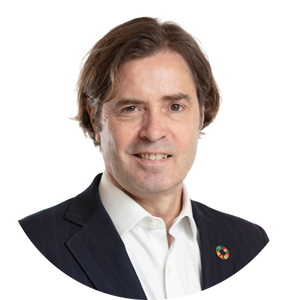
Steve has managed the Secretariat of the UN Global Compact Network UK since 2007, connecting UK companies and other organisations in a global movement dedicated to driving corporate sustainability and the Sustainable Development Goals. He has been Chair of the UN Global Compact’s Global Network Council and was a member of the UN Global Compact Board.
He was previously a Programme Director at the International Business Leaders Forum (IBLF) leading projects across a wide range of responsible business issue areas. Prior to joining IBLF, Steve was the founder and Managing Director of a successful retail sports equipment business in Canada.
He has a B.Comm from the University of British Columbia and an MSc in Business & Environment from Imperial College London.
Dr Kate Roll
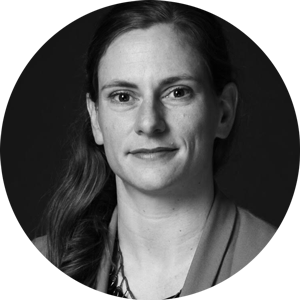
Dr Kate Roll is a political scientist interested in vulnerability, with a particular focus on how people in poverty and following conflict gain greater social and economic security. She currently serves as an Associate Professor in Innovation, Development and Purpose and Head of Teaching at UCL’s Institute for Innovation and Public Purpose and the Faculty Lead for Public Policy for The Bartlett.
Her multi-disciplinary work brings together politics and policy, business ethics, and development studies. Committed to grounded research, she has conducted in-depth field research in Timor-Leste, Indonesia, the Philippines, and Kenya. Recent projects have focused on the United Nation’s Sustainable Development Goals, and she leads the UK’s Sustainable Development Solutions Network (SDSN).
Prior to joining IIPP, Kate was based at the University of Oxford, where she ran a large, multi-year research partnership on responsible business and contributed to the strategy and innovation curriculum at the Saïd Business School. She holds a BA from Brown University, and an MPhil in International Development Studies and DPhil in Politics from the University of Oxford.
Anca Tacu
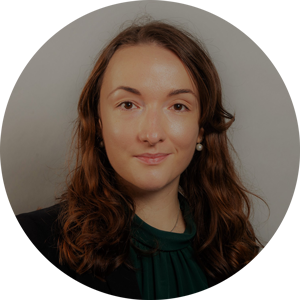
Anca Tacu is the Network Manager for the UK hub of the UN Sustainable Development Solutions Network (SDSN), playing a key role in the growth and strategic development of the network. The SDSN UK hub is hosted by UCL IIPP, and it brings together and mobilises higher education institutions within the UK around practical solutions that contribute to the implementation of the 17 UN SDGs.
As part of her work, Anca has directly contributed to the ‘Measuring Up 2.0’ report, a key publication produced by the UN Global Compact Network UK. Anca’s contribution includes being an author on two of the report chapters – SDG 13 ‘Climate Action’ and data gaps.
Anca holds an MSc in Management with Business Strategy and the Environment from Birkbeck College, University of London.
Panel #1 Speakers
Dr Steven Hill
Director of Research at UKRI

Steven Hill is Director of Research at Research England. Steven was formerly Head of Research Policy at the Higher Education Funding Council for England (HEFCE), and leads on all aspects of research policy and funding.
Steven is responsible for research funding, including quality-related funding (QR), general capital funding and the UK Research Partnership Investment Fund (UKRPIF). He also leads Research England’s research assessment and policy work, and is the chair of the steering group for the 2021 Research Excellence Framework (REF). Policy responsibilities include research integrity, public engagement and open research, and Steven contributes to debates and discussions at home and overseas on the enhancement and assessment of research impact
Dr Simon Kerridge
Principal Consultant at Kerridge Research Consulting

Simon has been a research manager and administrator for over 30 years, now an independent research consultant he previously led the research office at the University of Kent where he has had responsibility for all aspects of the research support including pre-award, post-award, impact, information, strategy, assessment and governance.
He has a passion for research management and administration (RMA) as a profession and leads the INORMS (International Network of Research Management Societies) RAAAP (Research Administration as a Profession) Task Force that is collecting longitudinal data about the profession. He was given the 2022 Innovation Award from CARA the Canadian Association of Research Administrators for his leadership on RAAAP. Simon sits on a number of RMA related committees and groups including being a board member for EARMA the European association. He is also co-chair of the NISO Standing Committee for CRediT the contributor role taxonomy for journal authorship.
He has recently finished working as a panel advisor for Research England as part of the UK Research Excellence Framework, supporting the Social Sciences panel, including the assessment of research impact.
Simon teaches on the Johns Hopkins’ masters in research administration and is an editor of the Journal of Research Management and Administration. He was an author of Metric Tide report and holds a professional doctorate in Electronic Research Administration.
Dr Saskia Pagella
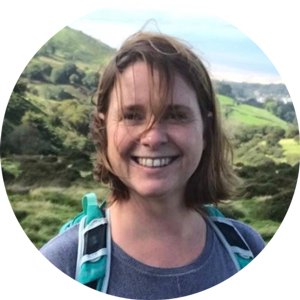
Dr Saskia Pagella has recently been appointed as the Head of Integrated Research and Impact Support (IRIS) at Bangor University.
She has worked for the University for more than a decade in a variety of teaching and research roles. Having completed her PhD in Soils and Environmental Science in 2010, she worked as the Programme Coordinator for the Welsh Government-funded Climate Change Consortium of Wales (C3W) working with Bangor, Cardiff, Aberystwyth and Swansea Universities.
The £4million, 5-year project was funded to bring together scientists working across disciplines and to deliver a wide range of engagement activities focused on improving societal understanding of climate change science. This included informing decision-making by Government, policymakers and businesses and delivering resources and sessions within the education sector and for the public.
From 2016, Saskia has managed Bangor University’s research impact portfolio with a good proportion of the research outcomes across the university delivering on the UN Sustainable Development Goals. The University was ranked in the top 30 in the UK in the recent Research Excellence Framework (REF2021) for the societal impact of its research, demonstrating the outstanding and far-reaching benefits Bangor’s research is having globally.
Case Study Speaker
Alan Chandler
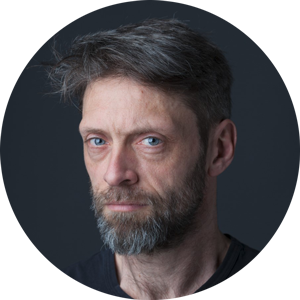
Alan Chandler is Dean of Research at the University of East London and is a Director of the conservation based practice Arts Lettres Techniques.
The politics of built heritage underpins the supervision of many of my doctoral students work, and has been published by Routledge – ‘The Production of Heritage’. My professional career as a Specialist Conservation Architect and Co-Chair of the RIBA Conservation Steering Group fully informs my teaching and research, with practice projects on National monuments such as the Grade 1 listed St Pancras Church and the Palacio Pereira in Santiago de Chile with Cecilia Puga.
Alan Chandler has previously taught at the Architectural Association, Goldsmith’s College of Art, Cambridge University and Edinburgh University.
Keynote Speaker
Sir Peter Gluckman
President, International Science Council
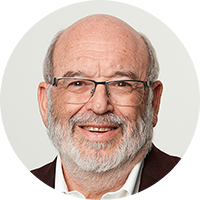
Distinguished Professor Sir Peter Gluckman is the director of Koi Tū: The Centre for Informed Futures, a think tank focused on long-term complex problems, which is hosted at Waipapa Taumata Rau, University of Auckland. He was first Chief Science Advisor to the Prime Minister of New Zealand from 2009-2018, the former foundation chair of the International Network of Government Science Advice (INGSA) and is president of the International Science Council.
He was awarded CNZM in 1996, DCNZM 2008 redesignated as KNZM in 2009, made a member of the order of New Zealand (ONZ, 2015) and received the Rutherford Medal in 2001.
He holds honorary chairs at the University College London, University of Southampton and National University of Singapore and is chief scientific officer of the Singapore Institute for Clinical Sciences. He was Executive Dean of the Faculty of Medicine and Health Sciences (1992-2001) and founding Director (2001-2009) of the Liggins Institute of the University of Auckland.
He has published over 750 scientific papers related to his research interests including hormonal development, neuro- and neuroendocrine-development, the development of executive functions, the evolution of puberty and adolescence. He has also authored many policy reports including a major report on adolescence to the government in 2011, followed by reports (2017) on youth suicide and mental health. He designed and still leads the major birth cohorts in Singapore (GUSTO, SPRESTO) and has designed and been principal investigator on numerous clinical trials. As director of Koi Tū he has led international studies and reports on social cohesion and leads major project on the broader causes of the rising rates of loss of youth mental wellbeing and on improving human capital in partnership with Ngāti Whātua Ōrākei.
He is a Fellow of the Royal Society of London (2001) and the Royal Society of New Zealand, a member of the National Academy of Medicine (USA, 2004), a fellow of the Academy of Medical Sciences (UK, 2006), a fellow of The World Academy of Sciences (2021). Amongst international awards he was awarded Singapore’s highest scientific honour, the Presidential Science and Technology medal in 2021 and the American Association for Advancement of Sciences Science Diplomacy award in 2016.
Panel #1 Speakers
Dr Steven Hill
Director of Research, Research England

Steven Hill is Director of Research at Research England. Steven was formerly Head of Research Policy at the Higher Education Funding Council for England (HEFCE), and leads on all aspects of research policy and funding.
Steven is responsible for research funding, including quality-related funding (QR), general capital funding and the UK Research Partnership Investment Fund (UKRPIF). He also leads Research England’s research assessment and policy work, and is the chair of the steering group for the 2021 Research Excellence Framework (REF). Policy responsibilities include research integrity, public engagement and open research, and Steven contributes to debates and discussions at home and overseas on the enhancement and assessment of research impact.
Dr Rasigan Maharajh
Chief Director of the Institute for Economic Research on Innovation at Tshwane University of Technology
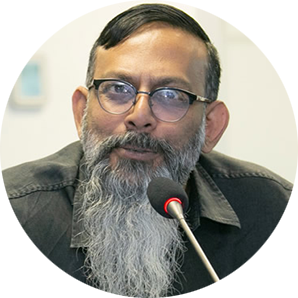
Rasigan Maharajh is concurrently the founding Chief Director of the Institute for Economic Research on Innovation at Tshwane University of Technology; an Associate Research Fellow of the Tellus Institute in Boston; and the Chairperson of the Southern Africa Node of the Millennium Project.
Rasigan was previously: Node Head of the Department of Science and Technology and National Research Foundation’ Centre of Excellence in Scientometrics and Science, Technology and Innovation Policy; Professor Extraordinary of the Centre for Research on Evaluation, Science and Technology at Stellenbosch University; Visiting Professor at Rede de Pesquisa em Sistemas e Arranjos Produtivos e Inovativos Locais in the Instituto de Economia of the Federal University of Rio de Janeiro, Brazil; Visiting Research Scholar at the George Perkins Marsh Institute of Clark University, USA; Head of Policy at the Council for Scientific and Industrial Research; and National Coordinator of the Science and Technology Policy Transition Project for South Africa’s first
democratic government. Before these deployments, Rasigan was: Senior Researcher at the Education Policy Unit of the University of Natal; National Coordinator and Researcher at Operation Upgrade of Southern Africa; Research Assistant at the Macro-Education Policy Unit of the University of Durban-Westville; Research Assistant at the Labour and Community Project of the South African Council for Higher Education; and a Casual Labourer at Pick and Pay Supermarkets. During the struggle against the apartheid regime, Rasigan held elected leadership positions within the: United Democratic Front, Congress of South African Trade Unions, and the African National Congress.
Laura Rovelli
Coordinator of the Latin American Forum on Scientific Evaluation (FOLEC-CLASCO)
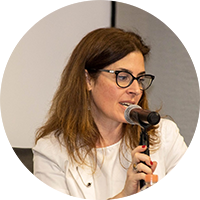
Laura Rovelli is a political scientist and PhD in Social Science from the University of Buenos Aires, Argentina. She is also adjunct researcher at the National Scientific and Technical Research Council (CONICET) and professor at La Plata National University, in Argentina.
Since 2020, she coordinates the Latin American Forum for Research Assessment (FOLEC) from the Latin American Council of Social Sciences (CLACSO) and from 2022 onwards, is a member of the Executive Board of DORA. At present, is member of UNESCO WG “Open Science incentives and financing” and CLACSO´S WG “Open Science as a Common Good”. Her lines of research focus on academic evaluation, doctoral and research training and incentives for open science.
Matthew Guest

Matthew Guest is the Head of Local and Regional Business Engagement at the University of Central Lancashire. He facilitates the University’s work with regional partners on a variety of diverse projects to maximise the region’s potential for local growth and redevelopment through research, innovation and knowledge exchange.
Matthew was previously a Policy Manager for GuildHE, the representative body for specialist and smaller universities and colleges where he led on knowledge exchange; skills policy; international policy and partnerships.
Matthew holds an MSc in Voluntary Sector Management from City, University of London and an MA in Classics from the University of St Andrews.
Dr Sonja Luz
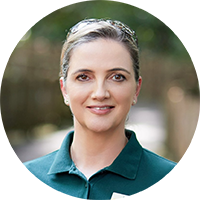
Dr Sonja Luz is the CEO of Mandai Nature, a Singapore-based non-profit conservation organisation jointly set up by Temasek and Mandai Wildlife Group (MWG) which manages the city-state’s zoological parks including Singapore Zoo, Night Safari, River Wonders and Bird Paradise. Mandai Nature is the conservation arm of Mandai Wildlife Group and was established with the aim of advancing efforts on biodiversity protection in Singapore and Asia.
Dr Luz is responsible for delivering and scaling up species conservation programmes for Mandai Nature and Mandai Wildlife Group by building strong strategies as well as linkages between ex situ and in situ conservation efforts for the zoological parks, in Singapore and the wider Asia region. She works closely with local communities and partners in the field to develop and manage holistic projects, as well as drive collaborative partnerships for tangible outcomes in the protection of species and their habitats. This includes hosting and driving global multi-stakeholder collaborative alliances, like the IUCN SSC Asian Species Action Partnership, to address critical conservation needs. Mandai Nature currently supports over 40 conservation projects involving many critically endangered species such as the Rote Snake-necked Turtle, Negros Bleeding-heart Pigeon and Sunda Pangolins. She was also key in steering the establishment of the IUCN SSC Centre for Species Survival Centre: Southeast Asia hosted by Mandai Nature.
Dr Luz advocates for conservation solutions that bring positive outcomes for Wildlife, People and Nature. To this end, she believes in the integration of ex-situ and in-situ conservation approaches, building capacity, and strengthening the links between zoological institutions and conservation partners for greater conservation impact.
Professor Hugh P. McKenna CBE, PhD, B.Sc(Hons), RMN, RGN, RNT, DipN(Lond), AdvDipEd, FFN RCSI, FEANS, FRCN, FAAN, MEA, MEASA
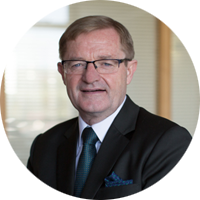
Professor Hugh McKenna was, until recently, Dean of Medical School Development and Pro Vice Chancellor Research and Innovation at Ulster University, UK. He has over 250 publications, including 17 books; his latest on Research Impact published by Springer Nature in 2021.
In 2014 and 2021, he chaired the UK’s Research Excellence Framework’s (REF) expert panel assessing research on dentistry, pharmacy, biomedical science, allied health professions and nursing and midwifery. He has chaired research quality panels for the Swedish Research Council and chaired numerous panels for the Hong Kong Council for Accreditation. In 2019 and 2020, he received two Honorary Doctorates and held 7 international visiting professorships. In 2019, he was appointed Member of the Academia Europaea and in 2020 a Member of the European Academy of Sciences and Arts. His recent appointments include: in 2020 Trustee on the Alzheimer’s Society UK and in 2023, member of the Hong Kong Standing Review Board.
Panel #3 Speakers
Dr Jingwen Mu
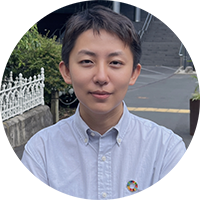
Henry Unwin
Head of Carbon and Climate Services, Simply Sustainable
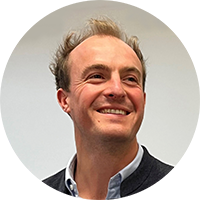
Throughout his career, Henry has worked for a range of organisations including environmental start-ups, charities, regional government, sustainability consultancies and in-house.
After advising Nando’s as a consultant Henry went on to join the restaurant group as their Head of Sustainability. Over his 5 years at the organisation, Henry and the team reduced the carbon footprint of the average meal by 40%, reduced direct emissions by 98% and donated over 2.5 million meals through their industry-leading food donation programme. In 2020 the company became the first restaurant group in the world with an approved Science-Based Targets initiative and a continued commitment to better chicken welfare.
In 2021 Henry joined Daylesford Organic and Bamford as their Director of Sustainability where he was responsible for keeping these pioneering businesses at the forefront of sustainability. Henry drove impact throughout the supply chain: from organic and regenerative farming practices, through to hospitality, retail, clothing, skincare and spas. During his time at the company, Henry led the creation of its sustainability strategy and projects on soil carbon assessment, product and corporate carbon footprinting and sustainability comms. This culminated in the group achieving B Corp accreditation.